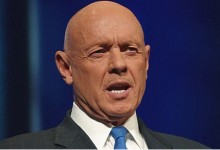In any organizational change project you will be taking people through some difficult phases and you will have to heavily rely on people to make a shift from the current reality to a future state. In such a situation, mutual trust and good relationships are sometimes the only things to hold on to. But how do you manage that?
I’d like to refer to the metaphor of the emotional bank account that is often used by Stephen Covey. It’s like a financial bank account into which you can make deposits and take withdrawals. The currency of this bank account is trust, so its statements tell us something about the relationship you have with your friends, family, associates, customers, etc.
The most important of all deposits into the emotional bank account of trust is empathy. Covey defines empathy as: listening to another person within his or her frame of reference. Empathy tells you what the important deposits are to that person. The key is to always develop a relationship that produces win-win agreements, so the feeling is that everyone wins. But to do that, you have to deeply listen to other people to find out what the win is for them.

There are two other important ways to make deposits on that emotional bank account: apologizing and thanking (yes – it’s as simple as that). First, as Marshall Goldsmith notes, humbly admitting mistakes and apologizing is a critical component of leadership, both in our personal and professional lives. Admission of mistakes and careful distillation of lessons learned, in fact, can strengthen the bond between you and the people around you. The same goes for expressing gratitude (that is: beyond what is ‘socially’ expected).
But if you are in a state of denial and don’t have the humility to admit that you’ve made a mistake, then you’ve just taken another withdrawal and people will come to not trust your apologies and your asking for forgiveness. So trusting the people around you, showing it to them, and trusting yourself to do so is an important competence for managing organizational change.



